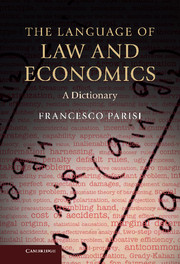P
Published online by Cambridge University Press: 04 August 2017
Summary
Pairwise competition voting: with this, candidates (or alternatives) are selected through a sequential one-on-one contest with all other candidates. In a direct pairwise selection, two candidates are matched against each other, the winner competes against a third contender, and so on. The candidate who prevails in the last one-on-one contest is declared the winner. As shown by Condorcet’s voting paradox, this form of direct pairwise selection can generate intransitive collective outcomes and is thus vulnerable to agenda manipulation. In order to avoid such a voting problem, a pairwise voting competition should be carried out as a tournament, allowing each candidate to compete one on one against everyone else. Each candidate would gain two points for each one-on-one contest that he or she wins and one point for each contest that results in a tied vote. The candidate with the highest total score is the winner. In such a pairwise voting competition, Condorcet’s voting paradox would be prevented. The candidate who wins the higher number of pairwise contests will do so regardless of the sequence of voting, thus avoiding both the intransitivity and the agenda-setting problems. See also Condorcet voting paradox and agenda setting.
Papers on Non-Market Decision Making: the original title of the journal Public Choice. Gordon Tullock founded the journal in 1966. See also Public Choice and Tullock, Gordon.
Paretian liberal: Paretian liberalism is a dual commitment to (a) some form of liberalism and (b) Pareto optimality. Sen (1970b) has shown that, even when the constraints of liberalism are starkly minimal, the possibility exists that some set of preference orderings will fail to satisfy either the condition of liberalism or Pareto optimality. Hence the title of his paper, “The impossibility of a Paretian liberal.” This antinomy is often referred to as “Sen’s liberal paradox.” See also Sen’s liberal paradox, social choice theory, interdependent utility functions, and meddlesome preferences.
- Type
- Chapter
- Information
- The Language of Law and EconomicsA Dictionary, pp. 214 - 241Publisher: Cambridge University PressPrint publication year: 2013



